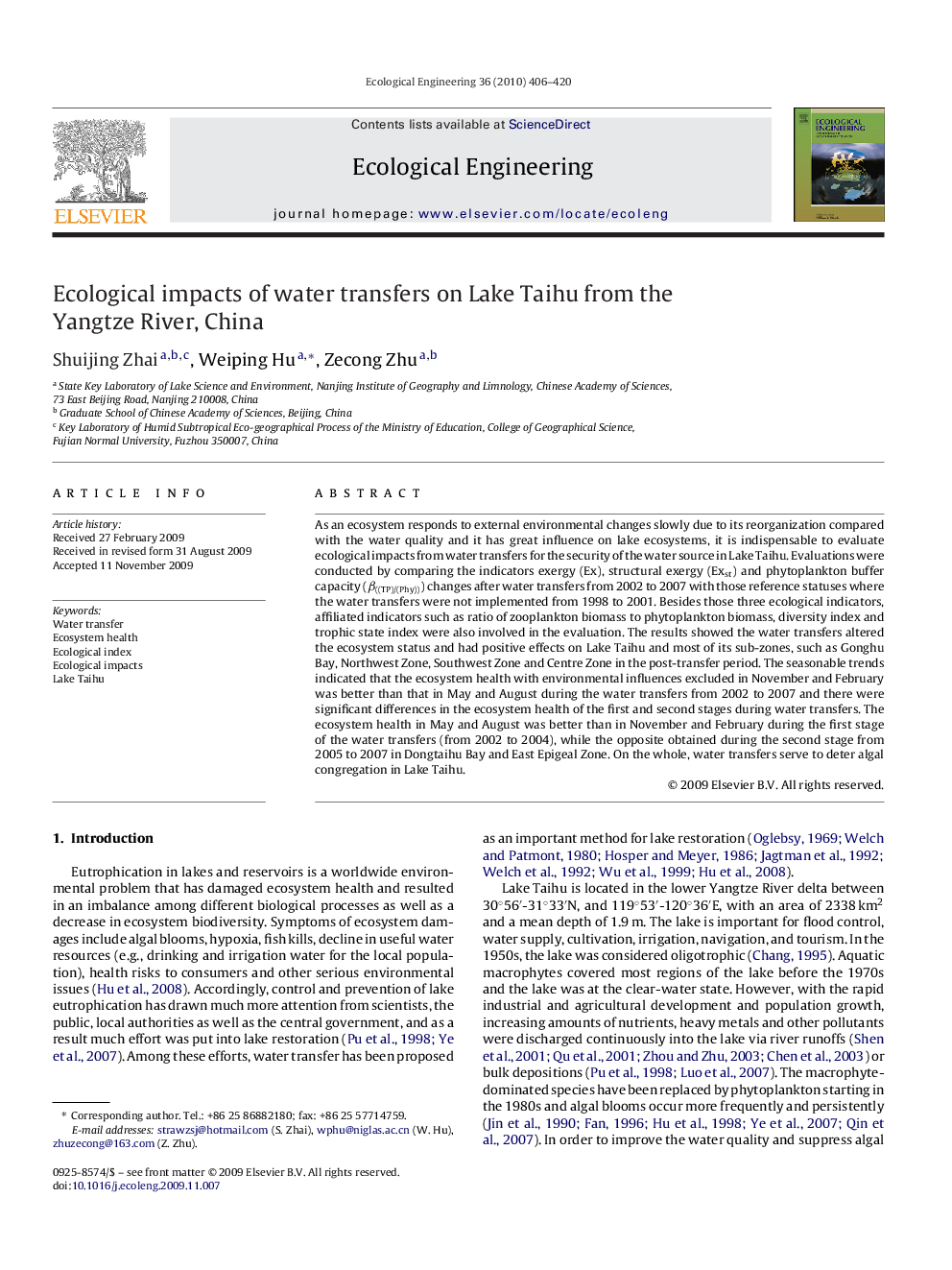| Article ID | Journal | Published Year | Pages | File Type |
|---|---|---|---|---|
| 4390746 | Ecological Engineering | 2010 | 15 Pages |
As an ecosystem responds to external environmental changes slowly due to its reorganization compared with the water quality and it has great influence on lake ecosystems, it is indispensable to evaluate ecological impacts from water transfers for the security of the water source in Lake Taihu. Evaluations were conducted by comparing the indicators exergy (Ex), structural exergy (Exst) and phytoplankton buffer capacity (β((TP)/(Phy))) changes after water transfers from 2002 to 2007 with those reference statuses where the water transfers were not implemented from 1998 to 2001. Besides those three ecological indicators, affiliated indicators such as ratio of zooplankton biomass to phytoplankton biomass, diversity index and trophic state index were also involved in the evaluation. The results showed the water transfers altered the ecosystem status and had positive effects on Lake Taihu and most of its sub-zones, such as Gonghu Bay, Northwest Zone, Southwest Zone and Centre Zone in the post-transfer period. The seasonable trends indicated that the ecosystem health with environmental influences excluded in November and February was better than that in May and August during the water transfers from 2002 to 2007 and there were significant differences in the ecosystem health of the first and second stages during water transfers. The ecosystem health in May and August was better than in November and February during the first stage of the water transfers (from 2002 to 2004), while the opposite obtained during the second stage from 2005 to 2007 in Dongtaihu Bay and East Epigeal Zone. On the whole, water transfers serve to deter algal congregation in Lake Taihu.
